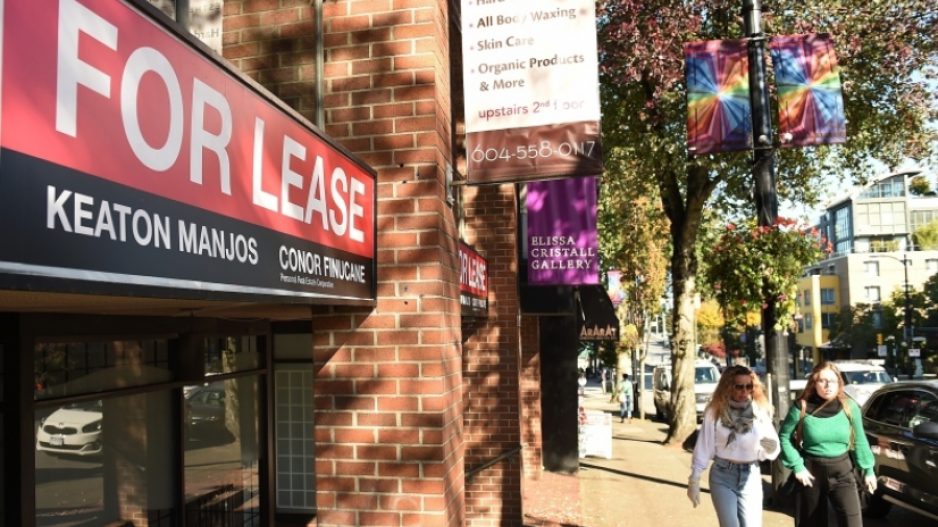Commercial landlords say many tenants not paying rent: options are taking limited government aid or evictions, but not both
Commercial real estate landlords in B.C., who are dealing with many retail tenants failing to pay rent for the second month in a row, are caught in a classic carrot-and-stick situation.
They can accept a government aid package that will cost them 25 per cent of the rental income, or move to evict non-paying tenants,
But they can't do both.
A Colliers survey found that 16 per cent of retail tenants did not pay rent in May. This was down from 39 per cent in April, according to the monthly Rent Collection and Relief Status report from Colliers Real Estate Management Services.
Of the tenants who requested rent relief in May, 23 per cent were able to negotiate direct relief agreements with their landlords outside of the Canada Emergency Commercial Rent Assistance (CECRA) program. Of that number, 94 per cent were granted deferrals and 6 per cent were granted rent abatements.
Under the CECRA the property owners must offer a minimum of a 75 per cent rent reduction for the months of April, May and June 2020. The program is meant to help small to mid-size business that have suffered at least a 70 per cent downturn in revenues due to COVID-19.
Tenants are provided with an interest-free loan to cover 50 per cent of their rent, with Ottawa kicking in 25 per cent and landlords swallowing 25 per cent.
Commercial property owners must apply for the assistance, but there is a B.C. catch.
A June 1 ruling from the province prohibits landlords from taking the following actions on a tenant's failure to pay rent:
• evicting, or exercising any other contractual or other right of re-entry to a tenant's leased property;
• giving a tenant a notice of re-entry or notice of termination of lease;
• distraining the tenant's property for any rent due; and
• taking any steps to rent out the tenant's leased property on the tenant's behalf.
Also on June 1, the B.C. government raised the minimum wage in the province to $14.60 per hour, up from $13.85 per hour, with liquor servers seeing their minimum wage rise to $13.95 per hour, up from $12.70.
The move is expected to hit already struggling retailers hard, according to the Retail Council of Canada.
To read the original story go here.




